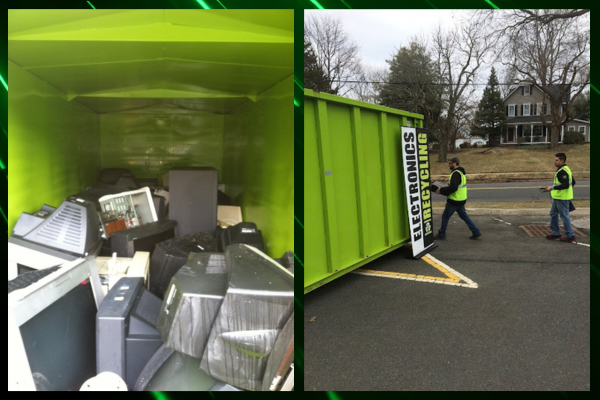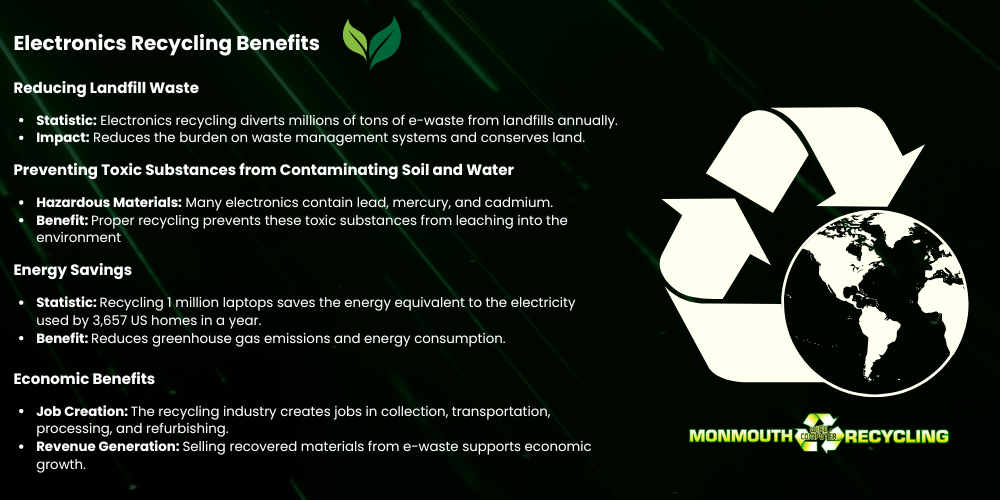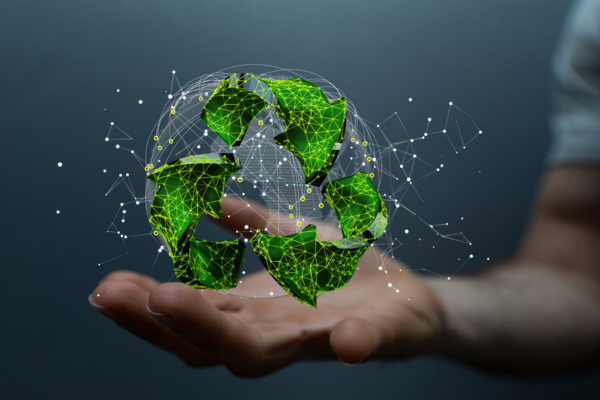The Impact of Municipal Waste
Municipal waste is a significant issue globally, with the United States alone generating about 292.4 million tons of municipal solid waste in 2018 (U.S. EPA, 2018). This staggering volume highlights the critical need for effective waste management solutions. Without proper recycling programs, a large portion of this waste ends up in landfills, contributing to environmental degradation and loss of valuable resources.
Importance of Municipal Recycling Programs

Municipal recycling programs are essential for managing the growing waste problem. These programs help divert waste from landfills, conserve resources, and reduce environmental pollution. By implementing robust municipal recycling programs, communities can enhance environmental sustainability, improve public health, and foster a sense of community responsibility towards waste management.
Understanding Municipal Recycling Programs
What Are Municipal Recycling Programs?
Municipal recycling programs are organized efforts by local governments to collect, process, and recycle various types of waste generated by households and businesses. These programs typically handle materials such as paper, cardboard, plastics, glass, metals, and electronic waste. The goal is to reduce the amount of waste sent to landfills, recover valuable materials, and minimize the environmental impact of waste disposal.
Monmouth Wire and Computer Recycling’s Support
Monmouth Wire and Computer Recycling plays a vital role in supporting municipal recycling programs by offering specialized services for the safe and responsible recycling of electronic waste. As a certified electronics recycling facility, Monmouth Wire and Computer Recycling provides municipalities with secure collection bins, scheduled pickups, and efficient processing of electronic devices. Their services ensure that electronic waste is handled in compliance with environmental regulations, data security standards, and best practices for recycling.
By partnering with Monmouth Wire and Computer Recycling, municipalities can enhance their recycling programs, reduce the environmental impact of e-waste, and promote sustainability within their communities. Monmouth Wire and Computer Recycling’s commitment to zero-landfill policies and secure data destruction further reinforces the benefits of integrating their services into municipal recycling initiatives.
Environmental Benefits

Reduction in Landfill Waste
Municipal recycling programs play a critical role in reducing the amount of waste sent to landfills. By diverting recyclables from the waste stream, these programs significantly decrease the volume of landfill waste, which helps prevent soil and water pollution. Landfills are a major source of environmental contaminants, including leachate that can seep into groundwater and methane gas, a potent greenhouse gas that contributes to climate change. By recycling materials like paper, plastic, glass, and metals, municipal recycling programs mitigate these harmful effects and promote a cleaner, healthier environment.
Resource Conservation
One of the primary environmental benefits of municipal recycling programs is resource conservation. Recycling allows for the reuse of materials, which reduces the need to extract and process raw resources. For example, recycling aluminum saves up to 95% of the energy required to produce new aluminum from bauxite ore. Similarly, recycling paper reduces the demand for virgin wood pulp, conserving forests and the biodiversity they support. By reprocessing materials, recycling programs help conserve natural resources, reduce habitat destruction, and lower the environmental impact of resource extraction.
Energy Savings
Municipal recycling programs contribute to significant energy savings. Manufacturing products from recycled materials generally requires less energy compared to using raw materials. For instance, producing recycled aluminum uses only 5% of the energy needed for new aluminum production. Recycling steel and glass also results in substantial energy savings, as it takes less energy to melt down and reform these materials than to extract and process them from ore or raw materials. These energy savings translate into reduced greenhouse gas emissions and a smaller carbon footprint, supporting efforts to combat climate change.
Economic Benefits
Job Creation
Municipal recycling programs are a catalyst for job creation in the recycling and manufacturing industries. Recycling activities, such as collection, sorting, processing, and remanufacturing, create employment opportunities at various stages of the recycling chain. According to the U.S. Recycling Economic Information (REI) Study, recycling and reuse activities in the United States accounted for approximately 757,000 jobs, $36.6 billion in wages, and $6.7 billion in tax revenues annually (EPA, 2024). By fostering job growth, recycling programs contribute to local economies and provide livelihoods for many individuals.
Cost Savings for Municipalities
Effective municipal recycling programs can lead to significant cost savings for municipalities. By reducing the volume of waste sent to landfills, municipalities can lower their waste disposal costs. Landfill tipping fees, which are charges levied on waste deposited at landfills, can be substantial. By diverting recyclable materials from landfills, municipalities can save on these fees and allocate funds to other essential services. Additionally, recycling can reduce the need for new landfill sites, which are costly to develop and maintain.
Revenue from Recycled Materials
Selling recycled materials can generate revenue for local governments. Recyclable materials, such as metals, paper, and plastics, have market value and can be sold to manufacturers who use them as raw materials for new products. This revenue can offset the costs of running recycling programs and provide financial benefits to municipalities. For example, the sale of recycled aluminum and steel can be particularly lucrative due to the high demand and value of these materials in the manufacturing sector. By capitalizing on the market value of recyclables, municipal recycling programs can become more financially sustainable and contribute to local economic growth.
Social Benefits
Community Engagement
Municipal recycling programs play a crucial role in engaging the community and promoting environmental education. By involving residents in recycling initiatives, these programs foster a sense of responsibility and collective effort towards waste management. Educational campaigns, workshops, and community events help inform citizens about the importance of recycling, proper sorting techniques, and the environmental impact of their actions. Engaged communities are more likely to participate in recycling efforts, leading to higher recycling rates and a more sustainable environment.
Improved Public Health
Reducing landfill waste through municipal recycling programs significantly improves public health. Landfills are often sources of harmful pollutants, including leachate that contaminates groundwater and methane gas that contributes to air pollution. By diverting waste from landfills, recycling programs help reduce these pollutants, leading to cleaner air and water. This reduction in pollution decreases the incidence of respiratory and waterborne illnesses, promoting healthier communities. Additionally, recycling hazardous materials like electronics ensures that toxic substances do not end up in the environment, further protecting public health.
Enhanced Quality of Life
Cleaner environments resulting from effective municipal recycling programs contribute to an enhanced quality of life. Reduced pollution and well-maintained public spaces create a more pleasant living environment, which can positively impact mental and physical well-being. Communities with strong recycling programs often experience less litter, reduced waste-related odors, and more green spaces, all of which contribute to a higher standard of living. Moreover, the collective effort of participating in recycling programs can strengthen community bonds and foster a sense of pride in maintaining a sustainable and clean environment.
How Municipal Recycling Programs Work
Program Setup
Setting up a municipal recycling program involves several key steps to ensure its success. Initially, municipalities should conduct consultations with recycling experts to assess the specific needs and challenges of their community. This process includes evaluating the types of waste generated, identifying suitable recycling methods, and determining the necessary infrastructure. Site assessments help identify optimal locations for recycling bins and collection points, ensuring convenience and accessibility for residents. Developing a comprehensive plan that includes these elements is crucial for launching an effective municipal recycling program.
Bin Placement and Collection
Monmouth Wire and Computer Recycling provides specialized electronics recycling bins for facilities, making the collection process convenient and efficient. These bins can be placed at strategic locations such as schools, government buildings, and community centers, ensuring easy access for residents. The company offers scheduled pickups to collect the bins, ensuring that electronic waste is regularly removed and processed. By providing these services, Monmouth Wire and Computer Recycling helps municipalities streamline their recycling efforts and maintain a consistent recycling schedule.
Processing and Recycling
The processing and recycling of collected materials involve several steps to ensure that waste is handled securely and responsibly. Once collected, electronic waste is transported to Monmouth Wire and Computer Recycling’s facility, where it is sorted and dismantled. Valuable materials like metals, plastics, and glass are separated and prepared for recycling. Special attention is given to the secure handling of electronics, including data destruction to protect sensitive information. The company uses industry-standard methods such as shredding, degaussing, and data wiping to ensure complete data security. The recycled materials are then sent to appropriate facilities for further processing, contributing to the circular economy.
Getting Started with Monmouth Wire and Computer Recycling
Municipalities interested in setting up a recycling program with Monmouth Wire and Computer Recycling can follow a straightforward process. First, contact the company through their website or by calling their office to request a consultation. During the consultation, the team will assess the municipality’s needs and provide recommendations for bin placement and collection schedules. Once the plan is agreed upon, Monmouth Wire and Computer Recycling will provide the necessary bins and set up the collection service. Regular pickups and processing ensure that the recycling program runs smoothly and efficiently. For more information and to get started, municipalities can visit Monmouth Wire and Computer Recycling’s contact page or call them at 732-922-3320.
Challenges and Solutions

Common Challenges
Implementing effective municipal recycling programs can be fraught with challenges. One common obstacle is the lack of public awareness and participation. Many residents may not fully understand the importance of recycling or the correct procedures for sorting waste, leading to contamination and reduced recycling rates. Additionally, insufficient funding and resources can hinder the establishment and maintenance of comprehensive recycling programs. Municipalities often struggle with securing the necessary budget for recycling infrastructure, educational campaigns, and ongoing operations.
Another significant challenge is the logistical complexity of collecting and processing diverse types of recyclable materials. Ensuring timely and efficient collection, especially in densely populated or geographically dispersed areas, requires careful planning and coordination. Moreover, market fluctuations for recyclable materials can affect the financial viability of recycling programs. When the market value of recyclables drops, municipalities may find it economically challenging to sustain their programs.
Innovative Solutions
To address these challenges, innovative solutions and strategies are essential. Public education and outreach campaigns are crucial for increasing awareness and participation in recycling programs. Municipalities can collaborate with schools, community organizations, and local media to disseminate information about the benefits of recycling and proper waste sorting techniques. Interactive workshops, social media campaigns, and community events can also engage residents and foster a culture of recycling.
Securing adequate funding can be achieved through various means, including grants, public-private partnerships, and the implementation of pay-as-you-throw programs, where residents are charged based on the amount of non-recyclable waste they produce. This incentivizes recycling and reduces overall waste.
To overcome logistical challenges, municipalities can leverage technology and data analytics to optimize collection routes and schedules, ensuring efficient and cost-effective operations. Investing in advanced recycling facilities and equipment can enhance the processing capabilities and quality of recycled materials.
Monmouth Wire and Computer Recycling offers tailored solutions to support municipal recycling programs. They provide secure electronics recycling bins, scheduled pickups, and efficient processing of electronic waste, ensuring compliance with environmental regulations and data security standards. Their commitment to zero-landfill policies and innovative recycling techniques helps municipalities achieve their sustainability goals.
Municipal recycling programs offer numerous environmental, economic, and social benefits. Municipalities are encouraged to invest in and support robust recycling programs to foster sustainability and community well-being. Monmouth Wire and Computer Recycling is committed to helping municipalities achieve these goals with innovative solutions and sustainable practices. Contact us today to set up a comprehensive recycling program tailored to your community’s needs.

